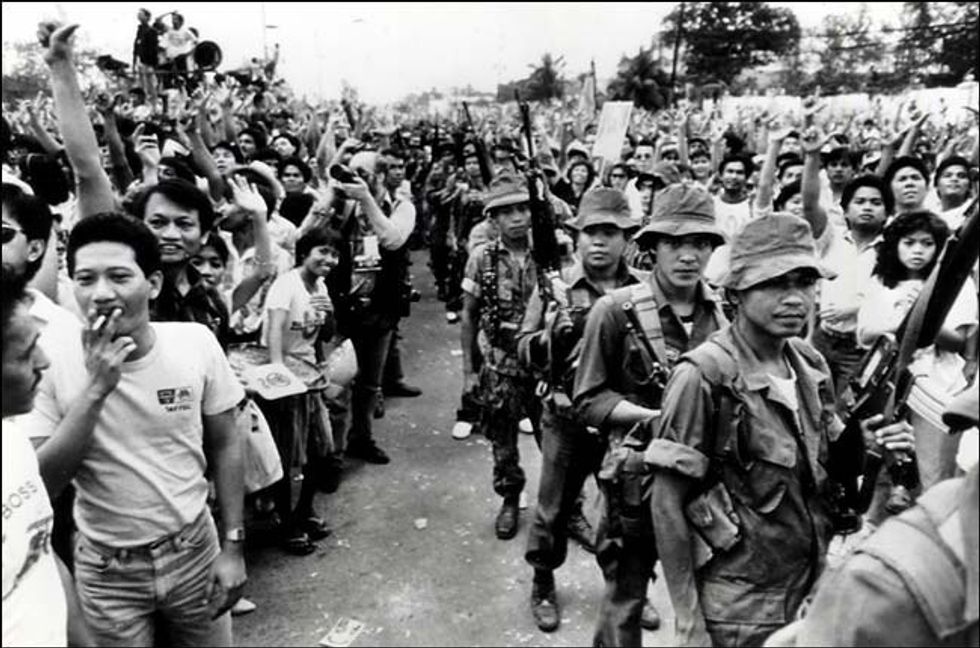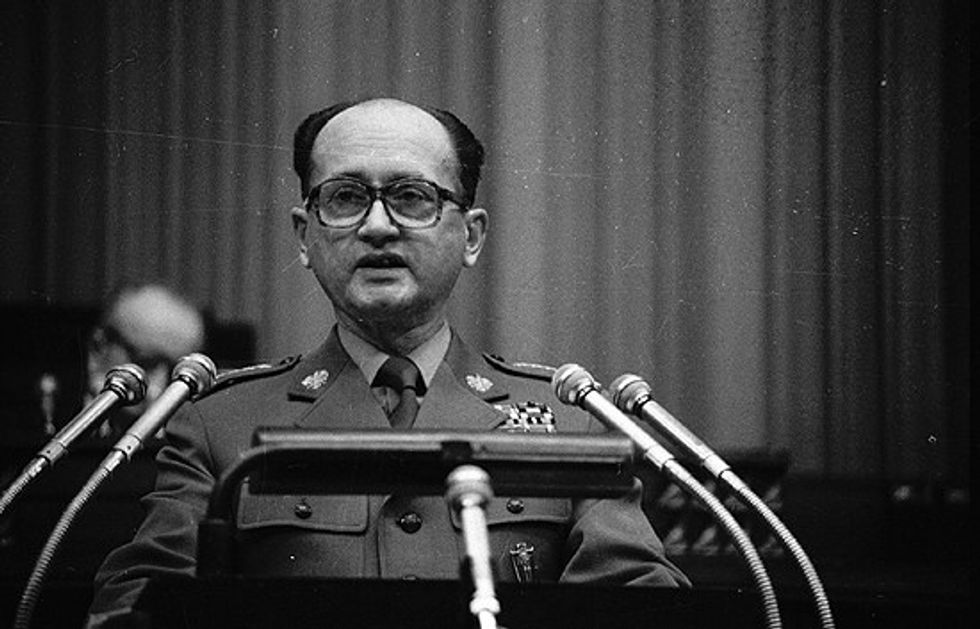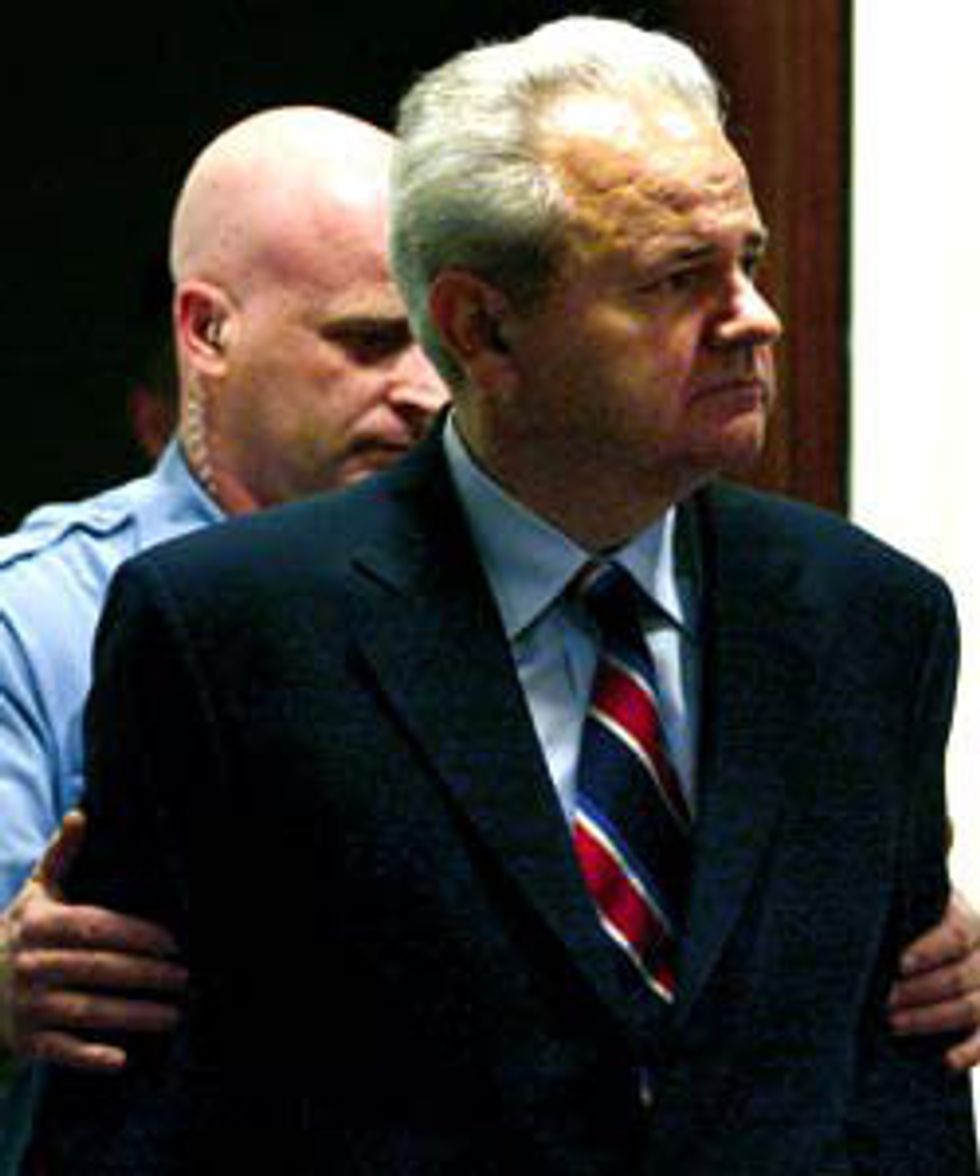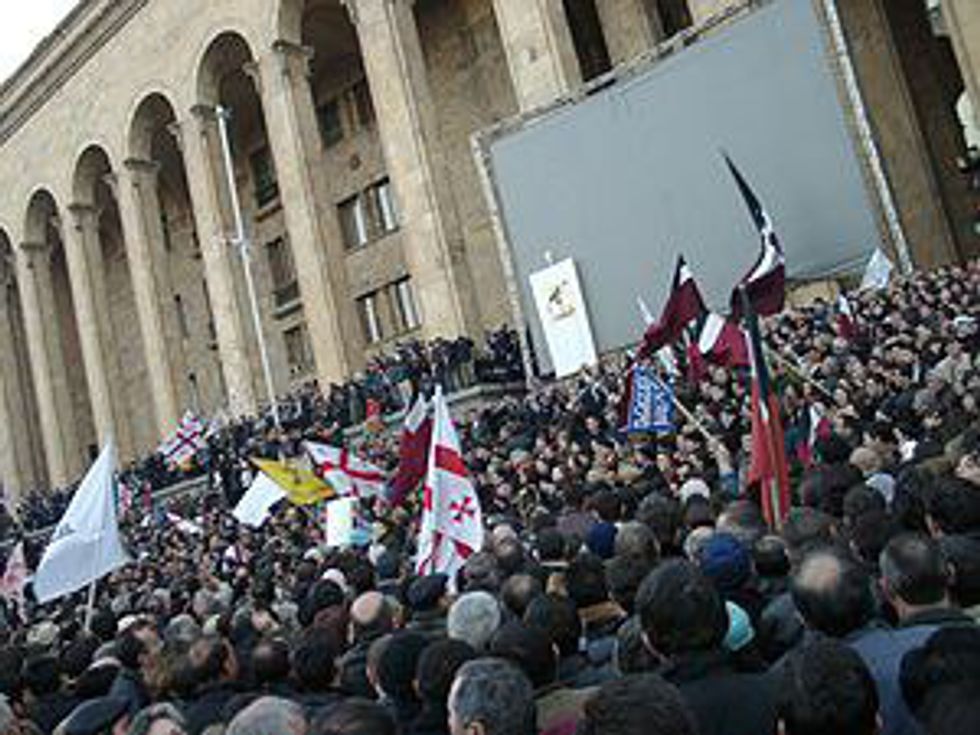On this odd little third-rate planet that revolves around a second-rate sun, we have seen nine declared wars in addition to undeclared wars such as Grenada, Libya, and Panama and the Gulf. America, land of the gun, has 25 million households with firearms, contributing to more than 10,000 deaths from handgun homicides annually. We've seen the loss of 80 million people who've fought in wars since 1900, a 500 percent increase over the 19th century. 40,000 people are killed monthly in more than 40 wars and conflicts in the Middle East, Iran and Iraq, to Northern Ireland. Suffice to say supporters of solving problems with violence have some pretty lofty numbers to defend.
People love to rationalize violence, defend violent attacks, and justify war-making. Instead of looking for reasons why to use violent force or instances when it's "okay" to be violent, let's consider the times when zero violence was used and low and behold, it actually worked. Here are six of the more recently overlooked instances where organized nonviolent resistance leads to peace.
People Power Movement - Philippine Revolution of 1986
For three years, a nonviolent revolution punctuated with peaceful revolts staged by nuns, students, and workers trained by Gene Sharp of the Einstein Institute of Boston, lead to the removal of Ferdinand Marcos from power. Marcos ruled as president and ruthless dictator of the Philippines from 1965 to 1986. The revolution and power of civil resistance pressured the dictator greatly. Corrupt and cruel during his second term, Ferdinand Marcos, once praised by Jimmy Carter as a champion of human rights, fled from the Philippines to exile in Hawaii on February 26th, 1986.
1988 Chilean National Plebiscite
General Augusto Pinochet, another US favorite, served as dictator of Chile from 1973 to 1990. Infamous for various violations of human rights - murdering and torturing thousands of political opponents among other forms, Pinochet was eventually voted on to determine whether his reign would continue for another eight years. Nearly 56% of voters voted to deny Pinochet another term. Several strikes, boycotts, and other nonviolent tactics contribute to driving Pinochet out of power. One Chilean organizer who demanded free elections said: "We didn't protest with arms. That gave us more power." The power of nonviolence trumps again.
The Fall of General Wojciech Jaruzelski's Puppet Regime
Wojciech Jaruzelski was a General of the Polish military government as well as the second president of the People's Republic of Poland. In the early 1980s, Jaruzelski imposed martial law to prevent a Soviet invasion. For nearly a decade, the solidarity labor union implemented a nonviolent strategic plan to run the communist dictator out of power. On August 24th, 1989, the labor union fulfilled its plan as power peacefully transferred to a coalition government. Few resisters were killed during the nine-year struggle to end the General's reign. The nonviolent method garnered attention, with the breakdown of the Soviet Union shortly on its way. Lech Walesa, the second president of Poland and Nobel Peace Prize recipient, and nonviolent Poles demonstrated how to bring about regime change without the use of guns, fists, and nukes.
Three ruthless regimes down, three to go.
Nelson Mandela
Maybe you saw this one coming. A former political prisoner for 27 years, Nelson Mandela showed the world just how much faith he had in the mighty force of organized nonviolent resistance against a government guilty of abusing human rights belonging to black South Africans. On May 10th, 1994, Mandela was elected as the first president of South Africa. His weapons did not include mass destruction, shooting, or combat of any kind. Instead, Mandela proved that when a justice-demanding population refuses to obey orders from a racist government, the result is freedom.
Now for the overlooked 21st century...
Overthrow of Slobodan Milosevic
For two years, student-led protesting united citizens to openly resist the rule of Slobodan Milosevic, dictator of Yugoslavia. A grand total of zero resisters were killed by the government during that time. Milosevic was arrested in 2001 for crimes he committed while in office. He died while on trial in The Hague.
And last but not least...
Revolution of the Roses
On November 23rd, 2003 this revolution brought peaceful change as Georgian president Eduard Shevardnadze, known for his corruptness and accusations of nepotism, was removed from office. Thousands and thousands of Georgians flooded the streets of Tbilisi in the final wave to force the government out of power. It was different from the power struggles associated with the civil war in the 1990s. No deaths. No injuries.
Was anyone thinking that these six examples were possible thirty years ago? Violent, cruel, ruthless regimes known for torturing punishments and enormous death counts had their power stripped away by people who carried no weapons, shot not bullets, and threw no fists. These resisters came to realize their power: weapons of the spirit.



























